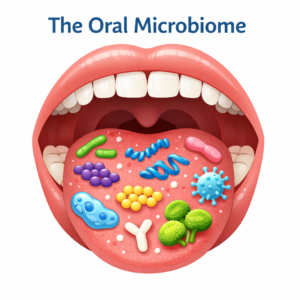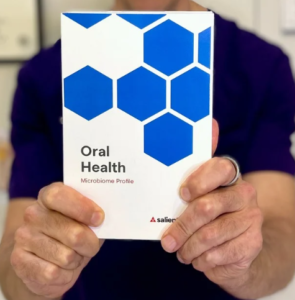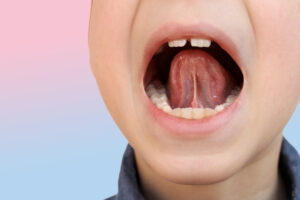Sleep is essential for your health. At Optimal Dental Health, we know that quality rest isn’t just about feeling refreshed in the morning, it supports everything from immune function to dental health and mental wellbeing.
If you or a loved one struggle with snoring, mouth breathing, or restless nights, our holistic approach can help you achieve deep, restorative sleep naturally.
Why Sleep Health Matters
Disrupted sleep can have far-reaching effects on your body. Chronic snoring, poor oral posture, or habitual mouth breathing can fragment your rest and increase risks for long-term health issues. Beyond feeling groggy or irritable, poor sleep can impact:
- Cardiovascular and immune health
- Hormonal balance
- Cognitive function and focus
- Oral health, including gum disease and tooth decay
At Optimal Dental Health, we address root causes, not just symptoms. By optimising breathing, posture, and sleep habits, we guide patients toward lasting improvements in sleep quality and overall wellbeing.
Common Factors Affecting Your Sleep
Snoring
Snoring occurs when airflow is partially blocked during sleep, causing vibration in the soft tissues of the throat or palate. While often considered harmless, habitual snoring can indicate underlying issues like mouth breathing, nasal obstruction, or sleep apnoea. Addressing these root causes, through nasal breathing, jaw positioning, or myofunctional therapy, can dramatically improve sleep quality.
Mouth Breathing
Breathing through your mouth bypasses your nose’s natural filtration and humidification, drying out the mouth and increasing the risk of cavities, gum disease, and bad breath. Chronic mouth breathing also reduces oxygen intake, preventing truly restorative sleep. Encouraging nasal breathing through exercises, mouth taping, myofunctional therapy or orthodontic support promotes better health and deeper rest.
Jaw and Tongue Posture
Your tongue and jaw positions are critical for maintaining an open airway. A collapsed jaw or tongue falling back during sleep can restrict airflow, leading to snoring or even sleep-disordered breathing. Correcting oral posture with myofunctional therapy or orthodontics can significantly improve sleep and reduce fatigue.
Poor Sleep Hygiene
Sleep hygiene refers to the habits and environment that support quality rest. Irregular bedtimes, screen exposure before bed, stimulants like caffeine, and stress can all disrupt your natural sleep-wake cycle. Simple adjustments, consistent schedules, a cool dark bedroom, and a relaxing bedtime routine, can have a profound effect on your sleep.
What is Myofunctional Therapy?

Myofunctional Therapy is a natural, non-invasive treatment that retrains your tongue, lips, and jaw muscles to support healthy breathing and swallowing patterns. By strengthening oral muscles and restoring proper posture, it can help:
- Encourage nasal breathing and reduce snoring
- Support long-term stability after orthodontic treatment
- Improve airway function and sleep quality
- Promote healthy facial and jaw development in children
Our certified Myofunctional Therapists, Jenny Nicoll and Dr Aoife Stack, work closely with our dentists and osteopaths to create personalised programmes for children and adults alike, combining exercises with specialist tools to optimise oral function and improve sleep.
Dr Aoife Stack, has also trained extensively in airway-focused dentistry, including functional frenuloplasty using a CO₂ laser. Her work integrates oral function, breathing, and growth in both children and Adults. She offers Myobrace and is a certified MyoMunchee provider, as well as offering tongue and lip tie solutions for adults and children.

Practical Tips for Better Sleep Hygiene
Improving sleep hygiene doesn’t require drastic changes, small, consistent habits can make a big difference:
- Keep a regular sleep schedule, even on weekends
- Limit screen time before bed and opt for calming activities
- Create a relaxing bedtime routine 90 minutes before sleep (warm bath (with magnesium salts), herbal tea, gentle stretches)
- Ensure your bedroom is cool, dark, and quiet
- Avoid caffeine, alcohol, or heavy meals 3hrs before bedtime
- Support nasal breathing if you snore or mouth breathe using myofunctional exercises or mouth taping
Understanding Snoring and How to Reduce It
Persistent snoring may indicate a partially blocked airway or sleep apnoea, which can disrupt oxygen intake and daytime energy. At Optimal Dental Health, we offer:
Custom Snore Guards
These comfortable, non-invasive devices gently reposition the jaw and tongue to keep your airway open, reducing vibrations that cause snoring. We are also proud to offer you custom-fit Panthera sleep devices.

Sleep Apnoea Testing
Early detection of sleep apnoea allows us to create a personalised treatment plan, which may include oral appliances or referral to a sleep specialist. We also offer at-home sleep study devices to monitor your sleep. Speak to our team today to find out more.
Lifestyle Measures
- Maintain a healthy weight
- Avoid alcohol and sedatives close to bedtime
- Sleep on your side rather than your back
- Practise myofunctional therapy exercises to strengthen oral muscles
With the support of our in-house Nutritionist, Lifestyle Coach, and Cranial Osteopath, we provide a comprehensive approach to restoring holistic sleep health.
Frequently Asked Questions
How much sleep do I need?
Most adults need 7–9 hours of sleep per night. Children and teens require more for proper growth and development.
Is myofunctional therapy suitable for children?
Yes. It can address mouth breathing, tongue thrusting, and speech issues, promoting proper oral development and preventing future dental and health problems.
How does a snore guard work?
By repositioning the lower jaw slightly forward, a snore guard opens the airway, reducing snoring and improving sleep quality.
Is mouth tape safe?
For suitable patients, mouth tape can safely encourage nasal breathing, but only under professional guidance.
Can dental health really affect sleep?
Absolutely. Jaw alignment, tongue posture, and breathing patterns all influence sleep quality and overall health.
Take the First Step Toward Better Sleep
Whether you or your child struggle with snoring, mouth breathing, or poor-quality sleep, Optimal Dental Health can help restore balance naturally.
Our holistic, personalised approach combines myofunctional therapy, sleep testing, snore guards, and lifestyle coaching to support your long-term wellbeing.
📍 1 Melcombe Street, London NW1 6AE
📞 0203 921 1000
🌐 www.optimaldentalhealth.co.uk
Start your journey toward restful, restorative sleep today. We can’t wait to see you at Optimal Dental Health.



